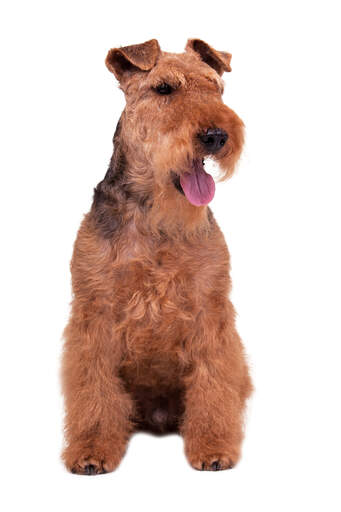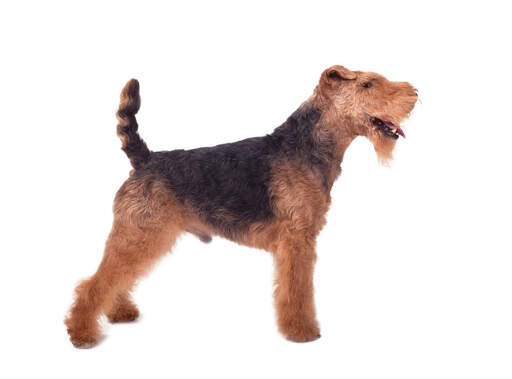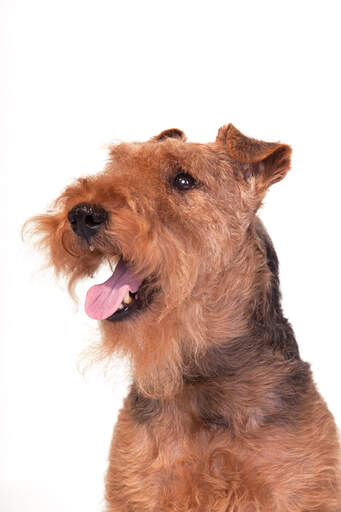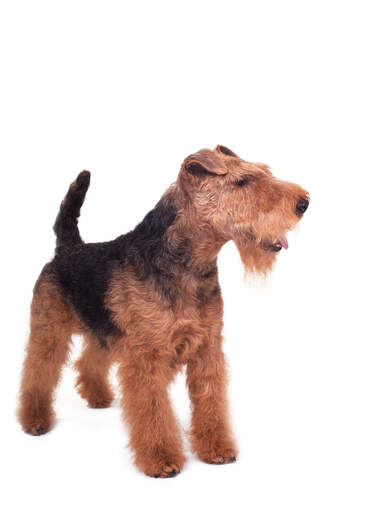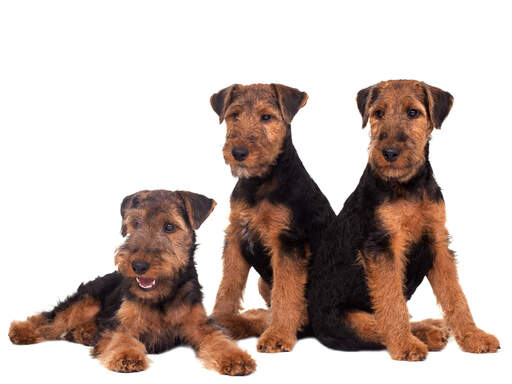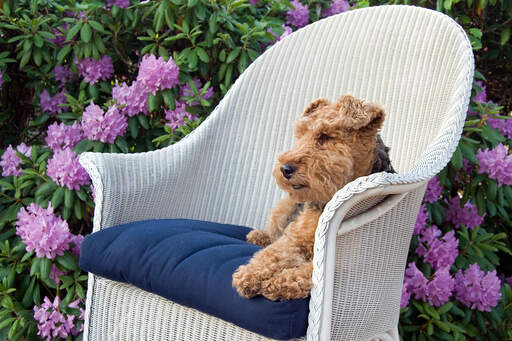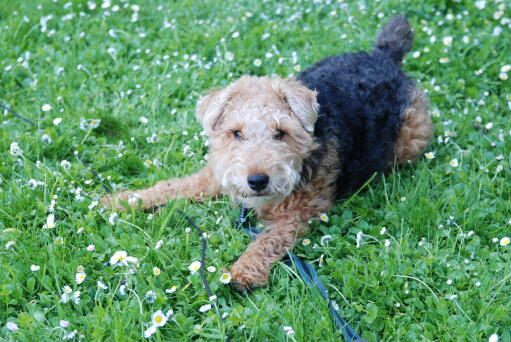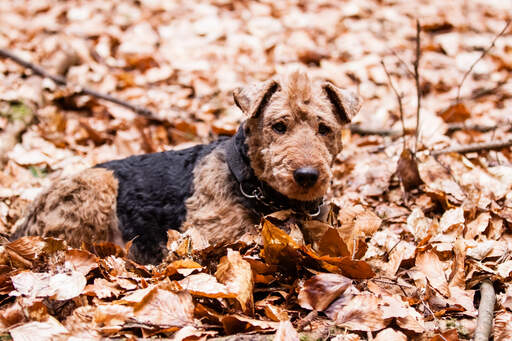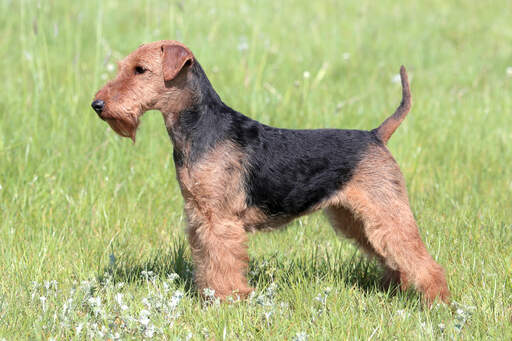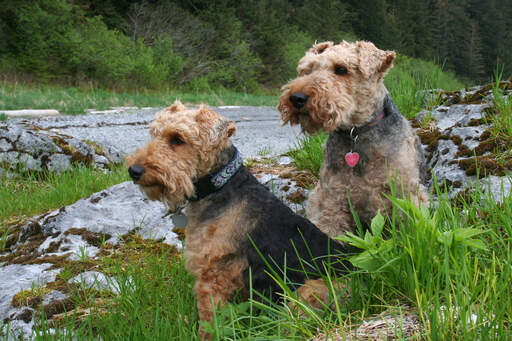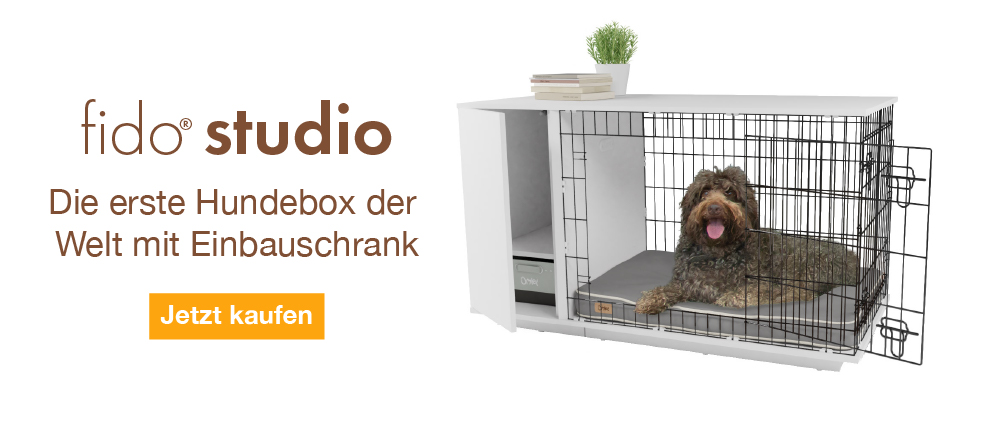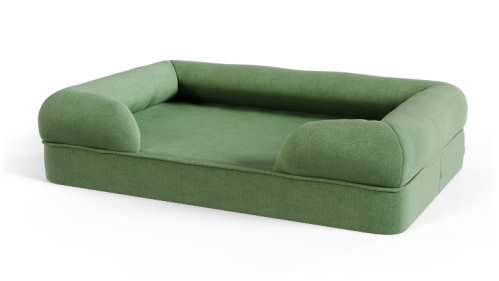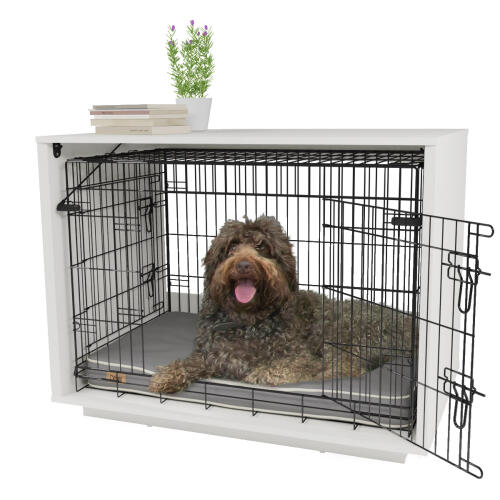Welsh Terrier










Geschichte
The Welsh Terrier or Welshie originates from Wales and is one of the oldest breeds of Terrier. Originally known as the Black and Tan Terrier, the name was changed in 1885 by the English Kennel Club and the breed was standardised. The 'roughness' of the coat was bred out of them. Welshies were bred to hunt fox, badger and otters and excelled at vermin control around farms.
Verhalten
The Welsh Terrier is bold, brave and fun. They have a zest for life and enjoy racing around with their owners playing games and generally going slightly mad. Their mischievous ways are entertaining without being destructive generally, it's just the way they are. They love children and are fine with other dogs if properly socialised from a young age, but cannot be trusted with small furry pets as the chase instinct is too strong. Some are fine with cats, others not. They are usually slightly reserved with strangers, but rarely aggressive towards them. The same applies to other dogs, they won't start a fight, but won't back down if another dog has a go. They love a cuddle on the sofa and are quite calm indoors, but can suddenly have a mad 5 minutes and dash around looking for a game to play. Training is slow. They are independent thinkers and bred to work alone, which makes training difficult. They get bored with repetition and prefer to work things out for themselves. Once they are in the right frame of mind, they learn quickly, but won't always follow your commands. They are stubborn at times and require constant reinforcement of the rules. Play based training works well, such as fetch and games outside to try and tire them out and make them think that learning is fun. Welsh Terriers can be problem barkers, so they need to learn the 'quiet' command from an early age to prevent problems with neighbours. Their inquisitive nature means they will always be on alert for the door bell and will bark to let you know someone is approaching. They aren't the typical Terrier and are generally more mild mannered than other breeds, but will still have the chase instinct when out walking, so best kept on a lead or exercised in a safe area. They need a fair amount of daily exercise to tire them out both physically and mentally. They will enjoy jogging along with you and make good partners who rarely tire. Flyball competitions are one way to keep them active, plus obedience with well trained individuals.
Their wiry coat needs brushing a couple of times a week, plus shaping every 3 months to maintain the face and legs. Stripping is performed for show dogs and clipping for pets, but this does alter the texture and colour of the coat. They are a healthy breed with no major breed specific ailments. However Lens Luxation and Glaucoma are more common in Welshies.
Charakter
Welsh terriers possess a playful and inquisitive temperament. Always happy to play a game of fetch in the garden but the moment your back is turned he will be finding any weak spots in the fence to make is great escape. They do best with active owners who can curb the Welsh Terriers boredom at home by providing stimulating games and walks.
Welsh Terriers are generally poor with strangers and other dogs with a bit of a scrappy reputation. To try and prevent this it is important to socialise them early with a variety of people and animals.
Gesundheitliche Probleme
Health problems that may affect Welsh Terriers include lens luxation (detachment of the lens inside the eyeball which can cause blindness), glaucoma, epilepsy, allergies, luxating patella (dislocation of the kneecap), Legg Calvé Perthes disease (degeneration of the femoral head which can cause lameness and joint swelling) and canine hip dysplasia (CHD).
Einzelheiten zur Rasse
- Status: Common
- Lebenserwartung: 12 - 13 years
- Produktgewicht: 9.1-10 kg
- Höhe: Up to 15"
- Selten: Nein
- Fell: Größe M - Hypoallergen
- Pflegeanforderungen: Mehr als einmal pro Woche
- Stadt oder Land: Beides
- Mindestanforderungen an Umgebung: Kleines Haus
- Mindestanforderungen an Garten: Kleiner bis mittelgroßer Garten
- Rassetyp: Hund zur Schädlingsbekämpfung
- Version: Größe M
- Energieniveau: Größe M
- Benötigte Bewegung: Bis zu einer Stunde
Fotos der Rasse
![[Kein Titel]](https://www.omlet.de/images/cache/251/198/welsh-terrier-dogs-no-caption-7a2bf33a_2830f1fe.jpg)

